An analysis of the recent midterm elections.
An analysis of the recent midterm elections.
By Prof Dr. Fernando Esteche, from Buenos Aires / Argentina
On Sunday, October 26, 2025, Argentina voted again. And it surprised us once more, although nothing should surprise us anymore in this open-air laboratory where the most brutal forms of financial capitalism and cognitive warfare are tested. The victory of La Libertad Avanza (Freedom Advances) was resounding: 9,341,798 votes in a scenario of record-breaking abstention, with almost 12 million people not voting. But this triumph was not decided at the Argentine ballot box, nor on the single paper voting ballot, introduced first time these elections.
It was cooked up in the offices of Washington, in the towers of Manhattan, and in Silicon Valley, in the algorithms that regulate the flow of global capital and virtual common sense.
The question that runs through these lines is not how the libertarian government won, but for whom it won. And the answer, though painful, is crystal clear: the U.S. Treasury Department won, JP Morgan won, the financial architecture that turned Argentina into just another chapter in its playbook for hemispheric domination won. Trump won.
Rescue as blackmail
Trump’s message was clear: if the administration didn’t win, it would be left without support. This phrase encapsulates the obscenity of what we are going through. We are no longer dealing with the Menem-era “special relationship,” that enthusiastic subservience that at least masqueraded as modernization. This time, the message arrived wrapped in a threatening tone: it is no longer a promising future, nor an American dream we could embrace, but the fear of losing even more.
The US Treasury’s intervention to contain the price of the dollar vis-a-vis the Argentine peso in the two weeks leading up to the election was not a gesture of friendship: it was a conditional rescue operation. How high would the dollar have climbed without that support? The question hung like an invisible guillotine over the neck of Argentine society. The government made it to the election alive thanks to the unprecedented lifeline provided by the US government, with ministers resigning en masse in the face of the impending electoral catastrophe.
And here emerges the fact that dismantles any conventional political analysis: a significant portion of the population, who have been affected and attacked by this government, ended up rescuing it with their vote. Between “voluntary servitude,” consensus-building studies, and everything else, last Sunday’s result takes everything to an almost hallucinatory extreme.
It would be inexplicable if no one with political acumen had offered an alternative to the proposal of a lascivious embrace with Trump. The contradiction posed was either we accept the support of the US government, regardless of the commitments that entails, or this country will crumble. No one raised their voice to argue that this country can rebuild itself with a different geopolitical alliance and the strength of its people. Perhaps they don’t believe that’s possible.
The bankers disembarking in their small planes
In the days leading up to the elections, Argentina hosted a high-level meeting convened by JP Morgan. The CEO of the world’s most powerful bank brought along a select group of international bankers to, quite literally, take the pulse of the Argentine financial market. The timing was not accidental: it was essential to ensure the market understood who was truly supporting the libertarian government.
The real tragedy unfolded that Thursday and Friday, culminating in Milei being brought to speak to them at none other than the Museum of Decorative Arts, as if the location’s symbolic message were needed to reinforce his servile and despicable role. Sunday’s events were the crowning achievement of this ominous situation, presented as a consensus, even though the actual figures show only 26% real electoral support based on the general electorate.
JP Morgan not only participated in regulating the Argentine foreign exchange market alongside the US Federal Reserve in the critical weeks leading up to the election, but also sent an unequivocal political message: Argentina is territory under the fiduciary administration of international financial capital. Monetary sovereignty, that fiction that some still insist on defending, was buried beneath the real-time transactions of Wall Street traders.
The investor Rob Citrone urged his friend Bessent to intervene with the IMF to bail out Milei when the economy was faltering. According to sources in Washington, he managed to get the organization not only to forgive Argentina’s default for failing to accumulate reserves, but also to reward it with a new $20 billion loan. When this proved insufficient and the September currency crisis threatened to engulf everything, he asked for help again: this time directly from the US Treasury. Citrone reportedly argued to Bessent that if the Argentine currency collapsed, so would Milei’s political fortunes. Furthermore, he argued that if Milei lost the election, Argentina would turn to China, and the United States would lose one of its main allies in Latin America.
The return of “dollar diplomacy”, the subtext of an extorted election
It is quite clear that the choice presented by the imperialist redeployment in the region is between banks or ships, alluding to the all-too-explicit message from the White House to the Southern Cone (Argentina or Venezuela). Perhaps that was the decisive subtext of this choice: dollars or guns. Backyard or invasion. As in the times of President Taft, successor to Roosevelt’s Big Stick policy, “dollar diplomacy” is once again convincingly imposing its terms on unworthy governments.
The exercise of sovereignty increasingly resembles voluntary servitude, an image that Étienne de La Boétie would enshrine in an exquisite essayin the 16th century. And indeed, democracy, in its most intimate essence, is once again subjected to serious forms of extortion. The combination of economic blackmail and the lack of a consistent political alternative imposes its will.
One explanation could be offered by the debt and delinquency figures, which have reached unprecedented levels. A population tormented by credit cards, with families going into debt to buy food, fragile economies exposed to the slightest shock. The old “installment vote” that granted a long and painful reprieve to Menem’s convertibility plan returns like a ghost. Argentine society, tied to installment consumption, prefers to sustain a regime it supports neither ideologically nor morally, rather than face the abyss of its immediate collapse. This perspective fails to consider the vast segments of the population that cannot even afford to take on debt and are condemned to underconsumption. Twelve million Argentinians ignored the call to vote.
Citrone, Druckenmiller and the lucrative business
But the story has even more revealing chapters, almost obscene in their transparency. Rob Citrone, CEO of an investment fund and close friend of Treasury Secretary Scott Bessent, bought depreciated Argentine bonds during the height of the currency run in September, when the market doubted the Argentine Treasury’s ability to pay, and investors were fleeing in panic. During that critical month, while everyone else was shedding seemingly unpayable debt, Citrone doubled down: he acquired more bonds at fire-sale prices.
It was clear he knew his friend Scott Bessent would orchestrate the bailout. Days after the announcement of the US aid, the bonds soared. Discovery Capital, Citrone’s fund managing some $20 billion, reportedly achieved a return of over 20% that year, according to Bloomberg, earning approximately $2 million daily from trades in the Argentine market. The result was an immediate and extraordinary profit. The sequence was so flawless that it reeked of insider trading, a scent no technical analysis could mask.
But Citrone is not alone. The New York Times revealed that the bailout scheme is tailor-made for speculative investment funds like BlackRock, Fidelity, and Pimco, along with other prominent figures on Wall Street. Among them is Stanley Druckenmiller, who mentored Bessent at Soros Fund Management. His family firm, Duquesne, is the second-largest investor in Argentina’s largest publicly traded fund. Druckenmiller publicly denied having communicated with Bessent about Argentina, but US media outlets point out that several of his funds are among the most heavily exposed to Argentine debt.
This episode is not a mere anecdote of individual corruption. It is a perfect illustration of how contemporary financial imperialism operates: core states provide information and backing, private operators reap the profits, and peripheral countries foot the bill with their social blood. Citrone and Bessent met three decades ago at George Soros’s Quantum Fund, along with Druckenmiller. This club of speculators made its fortune manipulating currencies: the famous bet against the British pound in 1992 that earned Soros $1 billion, or the bet against the Japanese yen in 2013 that Citrone convinced them to make, which netted them over $1 billion.
On April 14, 2025, when Bessent arrived at the Casa Rosada to support President Milei, Citrone himself was also there, almost at the same time. A photo of the two visitors circulated in financial circles and fueled speculation about a double bailout: a political one for Milei and a financial one for Discovery Capital. He didn’t just observe from Connecticut: he traveled to Buenos Aires several times, cultivating high-level contacts. His connection with Luis Caputo dates back to the years before Milei, when they worked together in the world of investment banking and Caputo was with JP Morgan in New York.
The triangle is complete: Bessent in Washington, Caputo in Buenos Aires, Citrone operating from Manhattan. Three friends in their thirties, all trained in the Soros school, all specialists in turning other people’s crises into personal gain. As Paul Krugman wrote, based on an analysis by journalist Matthew Klein, the dollars from the US Treasury or the IMF end up financing capital flight in Argentina: “The money comes in, props up the peso, and allows funds to sell their assets at inflated prices, only to then leave the country and let the currency collapse again.”
The missing piece of information
The second most significant aspect of the election was not the defeat of Peronism, but the record abstention rate. The October election had the lowest turnout in recent memory. The number of people who did not vote exceeded the number of people who voted for the winning party. If calculated in relation to the total number of registered voters, rather than the total number of valid votes, the leading minority party barely garnered 26.15%.
This phenomenon reveals the level of fragmentation plaguing the system as a whole. The exodus of voters mirrors the brain drain, the school dropout rate, and bears a striking resemblance to the collapse of the wage-based society. The crisis of representation has metastasized, and there is no possible solution. Nor is there any promise that can take root. Especially since there is no promise.
That nearly twelve million Argentinians chose not to participate could be due to indifference, weariness, or hopelessness. But fundamentally, it reflects the intuition that elections are not where the country’s fate is decided. That fate is played out on other playing fields, with other players, where Argentinian citizens are merely spectators of a game that slips through their fingers.
Between Thursday and Friday of the global bankers’ meeting, the markets were no longer paying attention to the election results because they already knew the results of the real power.
There comes a point where the discrediting of the formal democratic system becomes indistinguishable from the absence of political alternatives. Milei managed to maintain a connection with that nihilistic common sense, even from within the government. At least for now, he achieves the oxymoron of representing anti -politics. And he reinforces this with a slogan that retains its expressiveness: the establishment is definitely not coming back.
Regional Geopolitics: The Message for Latin America
The Argentine electoral victory has repercussions that extend far beyond the Río de la Plata. For Washington, the victory of La Libertad Avanza (Freedom Advances) confirms that the model of direct financial intervention works. Coups are unnecessary when an economy can be strangled until it votes “correctly.” Marines are unnecessary when trading algorithms and Fed decisions can produce the same disciplining effect.
Brazil is watching closely. So is Mexico. The lesson is clear: the Global South can have progressive governments, it can experiment with relative autonomy, but when the financial center of the empire decides to tighten its grip, the options are dramatically reduced. Argentina is a reminder that dependency is not just a theoretical category; it is a guillotine that can be activated at any moment.
For Trump, who seeks to consolidate his second term with an effective redeployment in the hemisphere, the Argentine victory is a decisive triumph. It demonstrates that the United States maintains the capacity for decisive intervention in Latin America without resorting to traditional Cold War methods. The soft power, the power of financial capital, combined with the implicit threat of hard military power, is devastatingly effective.
Between delirium and lucidity: what’s next
It’s about identifying the common-sense mechanisms upon which a popular will, at odds with its own interests, is built—a will capable of rewarding its oppressor. The operation is complex because it involves acknowledging the validity of the pronouncement, even though it disgusts us. It means explicitly rejecting it, but without exonerating ourselves. Only in this way can we avert a fate that threatens to swallow us whole. As one reader wrote upon learning the results: “The people are always right, but they’re on the wrong track.”
There are times when the institutional dynamic is blocked and ceases to process the pain and aspirations of the population. It has no answers because it can’t even hear the questions. Its functioning then becomes delusional. Under these conditions, the only way to regain some sanity is to immerse oneself fully in the trauma, to recover wisdom. In the streets, in the neighborhoods, in the inner worlds where a force of rebellion is brewing.
JP Morgan, the IMF, and Trump assume they have the Argentine economy in their hands. And with this government and this political class, it would seem so. But they ignore something that Argentine history teaches time and again: although it may not yet be showing due to the restrictions it suffers, due to the gagging of the nation, memory is long, and patience is short.
The libertarian victory of October 2025 is not the end of the story. It is merely another chapter in the long battle between popular sovereignty and financial imperialism, between a dignified life and desperate survival, between the people who resist and the capital that devours. As we already mentioned, Paul Krugman wrote with devastating irony that the Argentine bailout will not save the economy, nor will it likely rescue Milei politically: “But it might buy Bessent ‘s friends enough time to withdraw much of their money before the Argentine economy collapses.”
And in that battle, as always, you can’t fight with lukewarm people.







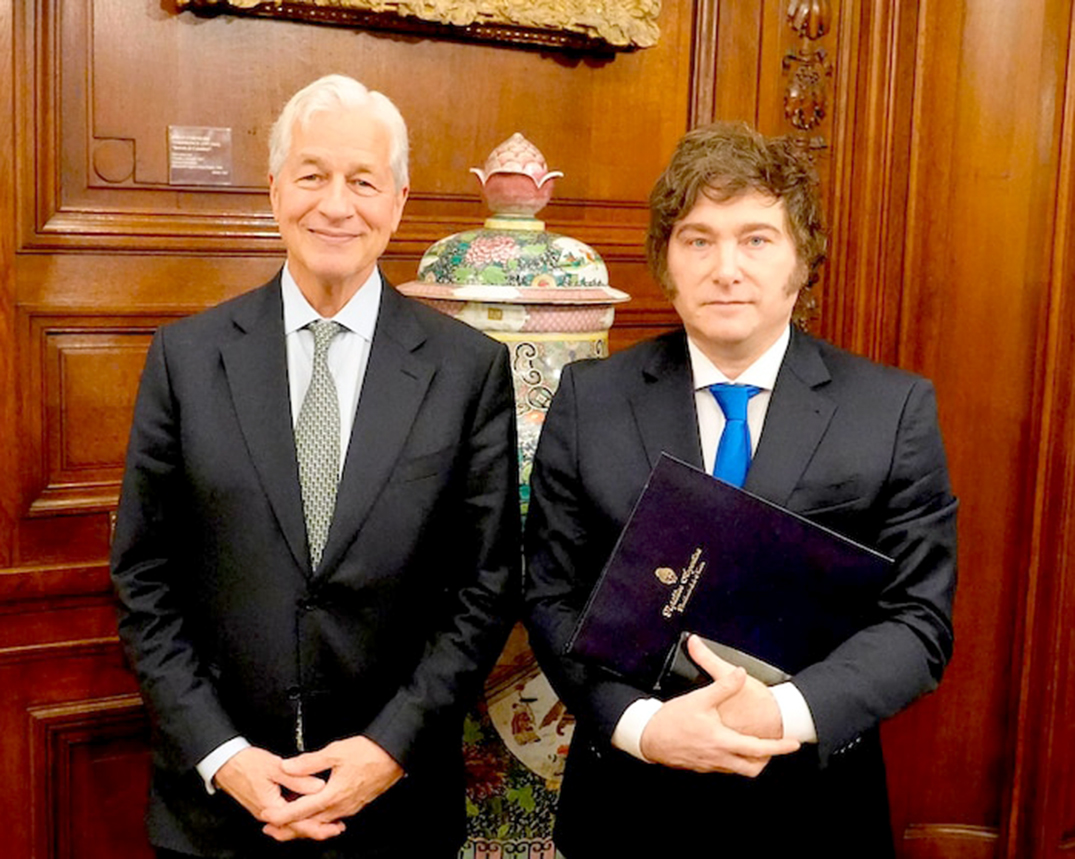

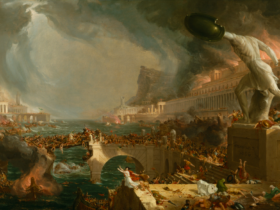

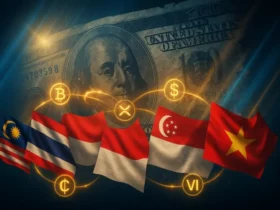
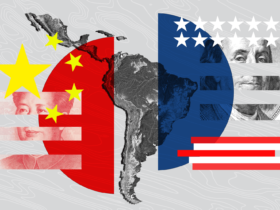


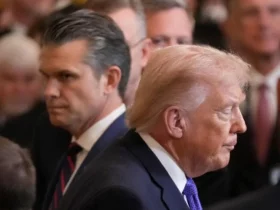

Leave a Reply